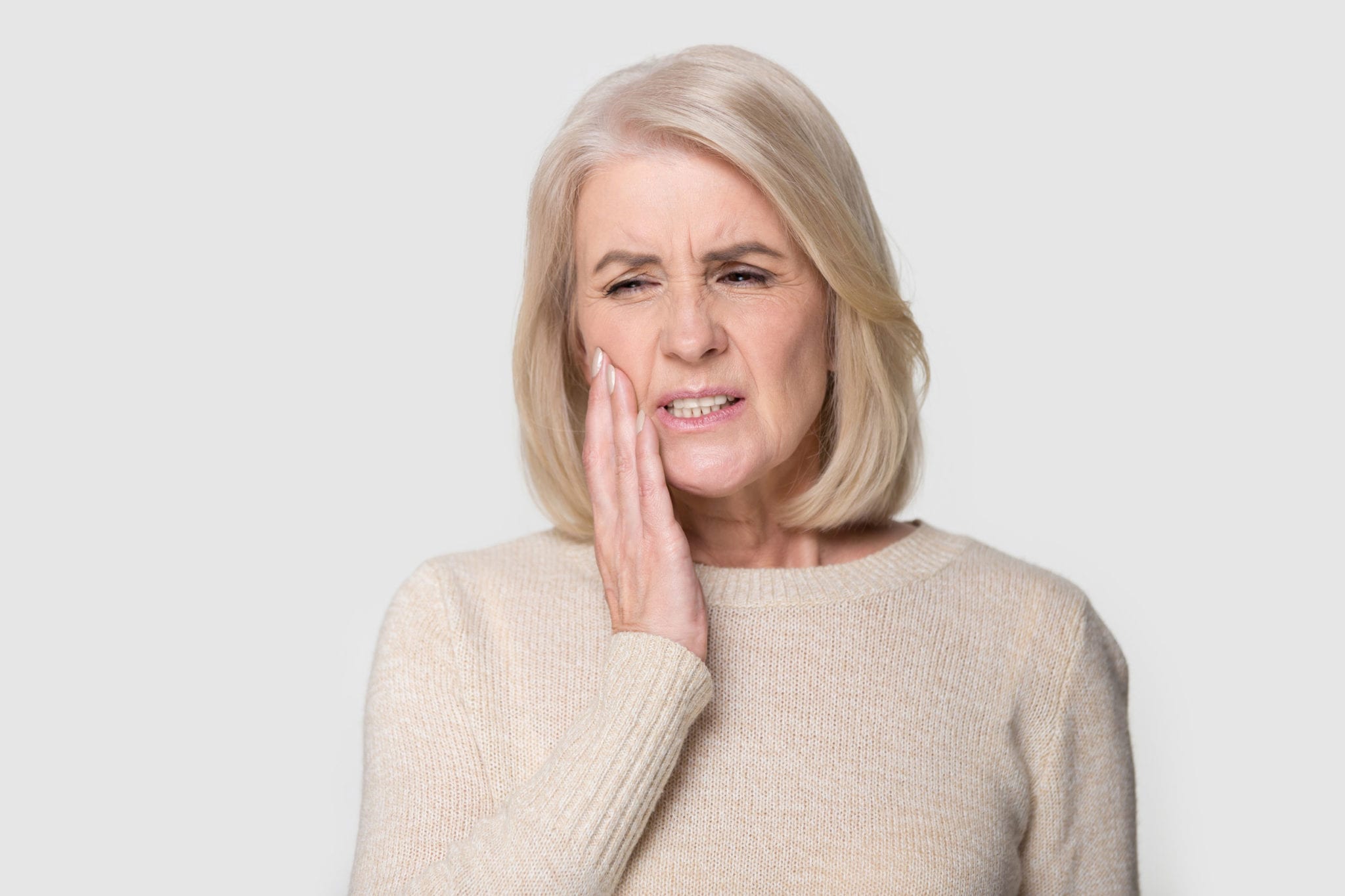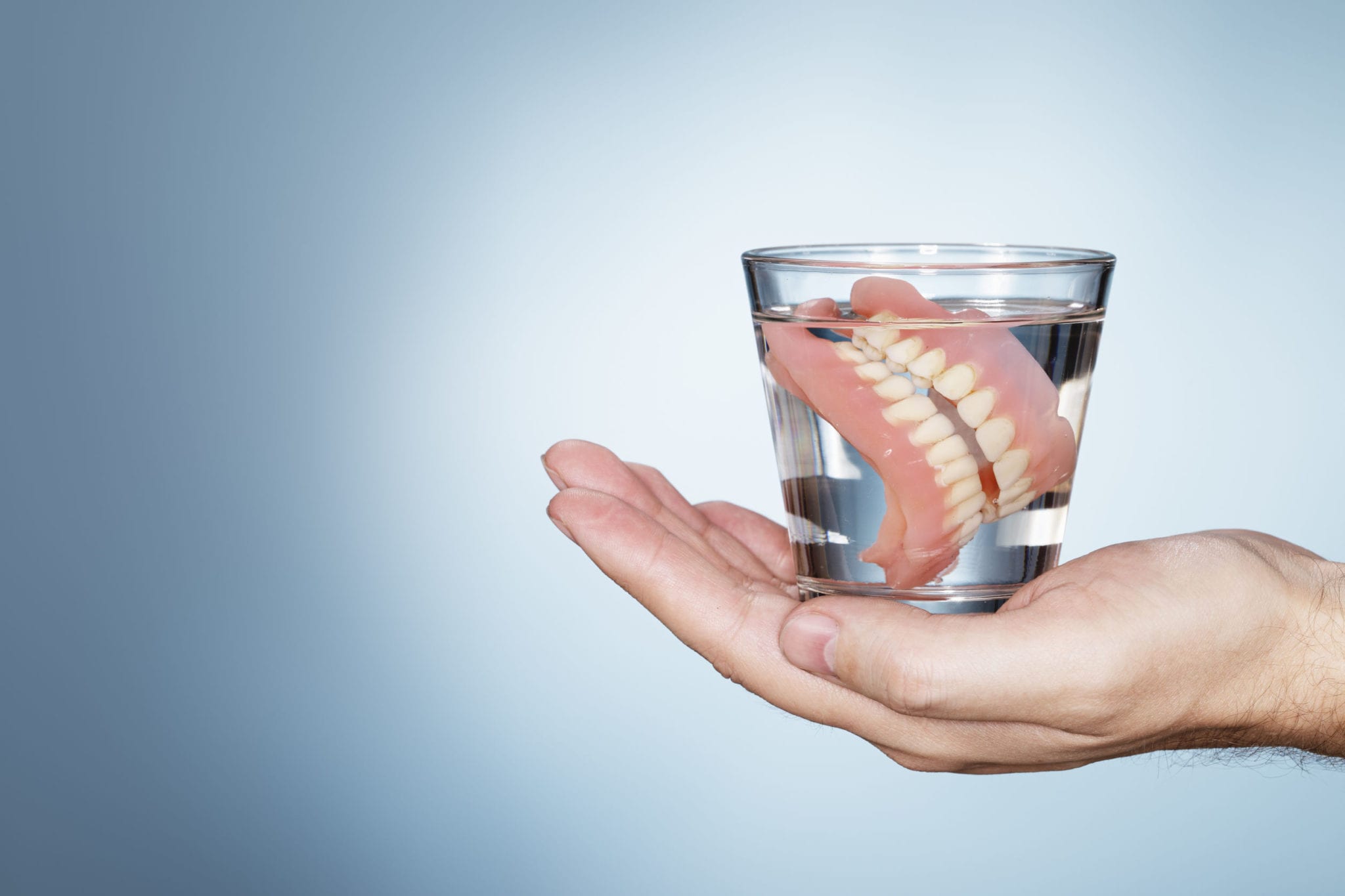
If you have new dentures, it’s normal to experience mild pain or discomfort in the first few weeks as your mouth adjusts. You may also experience some pain with dentures you’ve had for some time as your gums and bone structure change.
Fortunately, there are many remedies that can decrease and prevent denture pain. We’ve put together a guide covering the steps you should take if you experience denture pain.
Check in with Your Dentist
When experiencing any dental issues, it’s always best to check in with your dentist first. Give your dentist’s office a call. Be specific about the type of pain you’re experiencing, and what (if anything) seems to you to cause it.
Your dentist will be able to review your dental history, and determine whether you should come in for a quick check. It’s always important to rule out anything serious before you try home remedies.
Practice Good Denture Cleaning and Hygiene
Instructions on looking after your new dentures may appear a bit tedious, but it’s not as bad as it seems. Simply keeping your dentures well-maintained helps them last longer and can prevent causing you pain.
Best practices for good denture care:
- Clean your dentures thoroughly with a dental cleanser each night. If you’re not sure what type of cleanser to use, ask your dentist.
- Brush the roof of your mouth and areas covered by your dentures to prevent pain caused by yeast or bacteria.
- Immerse your dentures in water before going to bed. This will loosen any remaining particles on your dentures.
- Practice good oral hygiene. Use a fluoride-containing toothpaste. Brush at least twice daily with proper technique. Floss at least once a day.
- Use your dentures regularly. Irregular use can actually cause dentures to irritate your mouth when you do use them.
- Wear your dentures properly. This means wearing them all day, and taking them off and cleaning them at night.

Give Your Gums a Break
If your gums swell when using new dentures, try setting them aside. Allow your gums to fully heal. Then try again. You can also keep your gums healthy and promote healing of irritated gums by doing the following:
- Keep your teeth clean. Tartar and plaque can affect your dentures and lead to gum infection.
- Use a hot compress. It’s natural for the gum to become inflamed the first few weeks after tooth replacement. Treating your gums with a hot compress when you get your dentures can help to ease any pain.
- Always remove your dentures at night to give your gums a rest and allow saliva to naturally cleanse them.
Rule out Allergies to Adhesives and Cleaners
Denture cleaners and adhesives can cause allergies in some patients. Experiencing a burning sensation inside the mouth could indicate that you’re allergic to the dentures or products you’re using. Contact your dentist to get a list of alternative products, and try them out.
A few patients are allergic to the acrylic material applied to dentures. If you noticed gum swelling right after your fitting procedure, it’s possible that acrylic dentures aren’t right for you.
Some patients are even allergic to the denture material itself. If you have this concern, talk to your dentist and find out what kind of alternative material might work for you.
Eat Within Your Comfort Zone
When you first get your new dentures, stick to the same diet until you get used to them. This will help your mouth adjust more easily. Eating soft foods — soup, pudding, grapes, and berries — can also help you get used to chewing with your new dentures.
Avoid seeded bread and biting on hard food, as this can destabilize your dentures. The extra force can also cause sore spots on the gums beneath them.
Try Pain Relievers
When none of these options provide you relief from your denture pain, or if you need a little extra pain relief during your acclimation period, there are a few options for topical and oral painkillers that typically work great:
- Topical pain relievers. There are a variety of topical gels and creams used to treat dental pain. Most of these preparations contain benzocaine which numbs the area. Look in your drugstore’s dental (or even baby) section.
- Aloe vera gel. Smooth aloe vera gel (an edible preparation, not the type you put on a sunburn) over your gums at night to help soothe gum irritation.
- Anti-inflammatories and painkillers. Oral pain relievers such as ibuprofen and Tylenol can also help temporarily relieve denture pain.

Ultimately, while early denture pain is very common, it isn’t something you have to live with. Talk to your dentist first to make sure it’s nothing serious, and practice good denture care and oral hygiene to help prevent denture pain. When the discomfort is at a normal level — for normal reasons — a variety of over-the-counter treatments can effectively reduce your pain.






